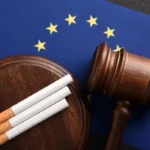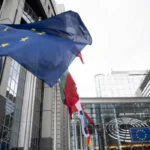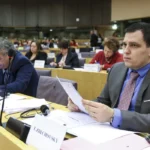Since January 1, Belgium has held the rotating presidency of the Council of the European Union (EU). Like the other founding countries of European construction, the kingdom is experienced in the exercise. However, its diplomacy is careful not to play tough. In the past, Belgian presidencies that we had quickly compared to pleasant walks turned into marathons. This was particularly the case in September 2001 when the terrorist issue came to the fore in Europe after the attack on the Twin Towers in New York.
A rotating presidency lasts six months. It consists of the coordination and continuity of the work of the Council of the EU, one of its main decision-making institutions. This time, more than a hundred complex files are on the table and it is important for Belgium to immediately determine which ones must be completed within the semester, so as not to arrive empty-handed on June 30.
Among these, the Pact on Migration and Asylum and the revision of the multiannual financial framework. Prime Minister Alexander De Croo adds conciliation between the climate and the economy. Nearly forty years after the definition of “sustainable development”, there is still a long way to go.
Seizures and grinding of teeth
Another important question: how to make a newly enlarged Union work? In mid-December, the Twenty-Seven agreed to open accession negotiations with Ukraine. Although in principle it will take many years of work before it is successful, diplomats who have experienced previous EU enlargements know very well that such an operation is not trivial, that for Celebrations and hugs are often followed by tantrums and gnashing of teeth.
Read also: Belgian communists on a roller coaster ride
Traditionally, Belgium counts on its sense of compromise to succeed in its presidency. Which requires interpersonal skills, diplomacy and a lot of availability. Problem: during the coming months, all the political men and women of the kingdom will be monopolized by the campaign which must lead to the triple election (federal, regional, European) on June 9. High risk ballot since the extremes are currently leading the polls.
Traditionally too, such an obstacle is removed by the assertion that Belgian diplomacy is seasoned and that it goes where politics barks.
Objective: reach compromises
In the columns of Le Soir, the specialist in European politics Hendrik Vos (University of Ghent) puts the importance of a rotating presidency into perspective, especially since the EU has a permanent president of the European Council and a head of diplomacy. He adds that “states that have great administrations do not always make good presidencies. The main goal of the exercise is to reach compromises. And a country like France, for example, does not have a great tradition in this area. Very often, the French approach the rotating presidency in a very personal way, with little sense of compromise. It is therefore not necessarily the small countries which have the worst presidencies.”
A Flemish thorn in the side
Because they are known to be experienced, Belgian presidencies are generally well received by other member states. But we must not forget that other alliances between countries and other interests have appeared with the enlargements. Little Belgium no longer has either the aura or the room for maneuver that it had when Europe operated at 12 or 15. It is also divided internally: Flanders intends to show that it exists beyond the federal, and intends to defend its own interests on the sidelines of this presidency.
On its route, Belgium will find Hungary. Two times. Initially, it will be up to her to convince Viktor Orban to fully side with his European counterparts on the Ukrainian issue. In doing so, the kingdom will be keen to set an example, especially since on July 1 Hungary will succeed it as the rotating presidency. He therefore has a card to play in showing how Europe is built. In compromise, not in invective and nationalism.
This article is originally published on .virgule.lu






